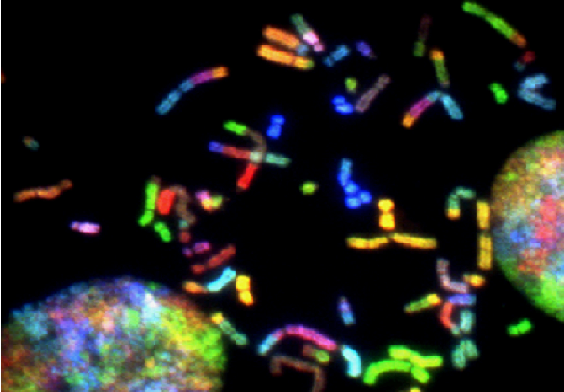May 28, 2021: AstraZeneca’s Tagrisso (osimertinib) has been approved in the EU for the adjuvant treatment of adult patients with early-stage (IB, II and IIIA) epidermal growth factor receptor-mutated (EGFRm) non-small cell lung cancer (NSCLC) after complete tumour resection with curative intent.
Tagrisso is indicated for EGFRm patients whose tumours have exon 19 deletions or exon 21 (L858R) mutations.
The approval by the European Commission was based on positive results from the ADAURA Phase III trial in which Tagrisso demonstrated a statistically significant and clinically meaningful improvement in disease-free survival (DFS) in the primary analysis population of patients with Stage II and IIIA EGFRm NSCLC.
The trial also showed a statistically significant and clinically meaningful improvement in DFS for Tagrisso in the overall trial population, a key secondary endpoint.
While up to 30% of all patients with NSCLC may be diagnosed early enough to have surgery with curative intent, recurrence is still common in early-stage disease. Historically, nearly half of patients diagnosed in Stage IB, and over three quarters of patients diagnosed in Stage IIIA, have experienced disease recurrence within five years.
About a fifth of the world’s lung cancer patients are in the EU and among those with NSCLC, approximately 15% have tumours with an EGFR mutation.4-6
Margarita Majem, MD, PhD, Department of Medical Oncology, Hospital de la Santa Creu i Sant Pau, Spain, said: “In the early stages of lung cancer, where tumour resection is possible but recurrence is far too common, adjuvant Tagrisso has shown an unprecedented disease-free survival benefit for patients with EGFR mutations.
I expect this approval will change clinical practice in the EU, as it heightens the critical importance of EGFR mutation testing across all stages of lung cancer to ensure as many patients as possible can benefit from targeted medicines like Tagrisso.”
Dave Fredrickson, Executive Vice President, Oncology Business Unit, said: “We know the earlier a patient’s cancer is detected and treated, the greater chance they may have of being cured, which is why this approval is significant.
For the first time, patients in the EU with EGFR-mutated lung cancer have a targeted, biomarker-driven treatment option available in the early stages of their disease that can help them live cancer-free longer.”
In the ADAURA trial, adjuvant treatment with Tagrisso reduced the risk of disease recurrence or death by 83% in patients with Stage II and IIIA disease (hazard ratio [HR] 0.17; 99.06% confidence interval [CI] 0.11-0.26; p<0.001) and by 80% in the overall trial population of patients with Stage IB-IIIA disease (HR 0.20; 99.12% CI 0.14-0.30; p<0.001).
Consistent DFS results were seen regardless of prior adjuvant chemotherapy use and across all prespecified subgroups.
The safety and tolerability of Tagrisso in this trial was consistent with previous trials in the metastatic setting. The ADAURA results were published in The New England Journal of Medicine.
Tagrisso is now approved to treat early-stage lung cancer in more than fifty countries, including in the US and China, and additional global regulatory reviews are ongoing.
Tagrisso is also approved for the 1st-line treatment of patients with locally advanced or metastatic EGFRm NSCLC and for the treatment of locally advanced or metastatic EGFR T790M mutation-positive NSCLC in the EU, the US, Japan, China and many other countries.
Lung cancer
Lung cancer is the leading cause of cancer death among men and women, accounting for about one-fifth of all cancer deaths. Lung cancer is broadly split into NSCLC and small cell lung cancer, with 80-85% classified as NSCLC.
The majority of NSCLC patients are diagnosed with advanced disease while approximately 25-30% present with resectable disease at diagnosis.
Early-stage lung cancer diagnoses are often only made when the cancer is found on imaging for an unrelated condition.
For patients with resectable tumours, the majority of patients eventually develop recurrence despite complete tumour resection and adjuvant chemotherapy.
Approximately 10-15% of NSCLC patients in the US and Europe, and 30-40% of patients in Asia have EGFRm NSCLC.
These patients are particularly sensitive to treatment with an EGFR-tyrosine kinase inhibitor (TKI) which blocks the cell-signalling pathways that drive the growth of tumour cells.
ADAURA
ADAURA is a randomised, double-blind, global, placebo-controlled Phase III trial in the adjuvant treatment of 682 patients with Stage IB, II and IIIA EGFRm NSCLC following complete tumour resection and adjuvant chemotherapy as indicated.
Patients were treated with Tagrisso 80mg once-daily oral tablets or placebo for three years or until disease recurrence.
The trial enrolled patients in more than 200 centres across more than 20 countries, including the US, in Europe, South America, Asia and the Middle East.
The primary endpoint was DFS in Stage II and IIIA patients and a key secondary endpoint was DFS in Stage IB, II and IIIA patients.
The data readout was originally anticipated in 2022.
In April 2020, an Independent Data Monitoring Committee recommended for the trial to be unblinded two years early based on a determination of overwhelming efficacy.
Treating physicians and patients continue to participate and remain blinded to treatment. The trial will continue to assess overall survival.”


